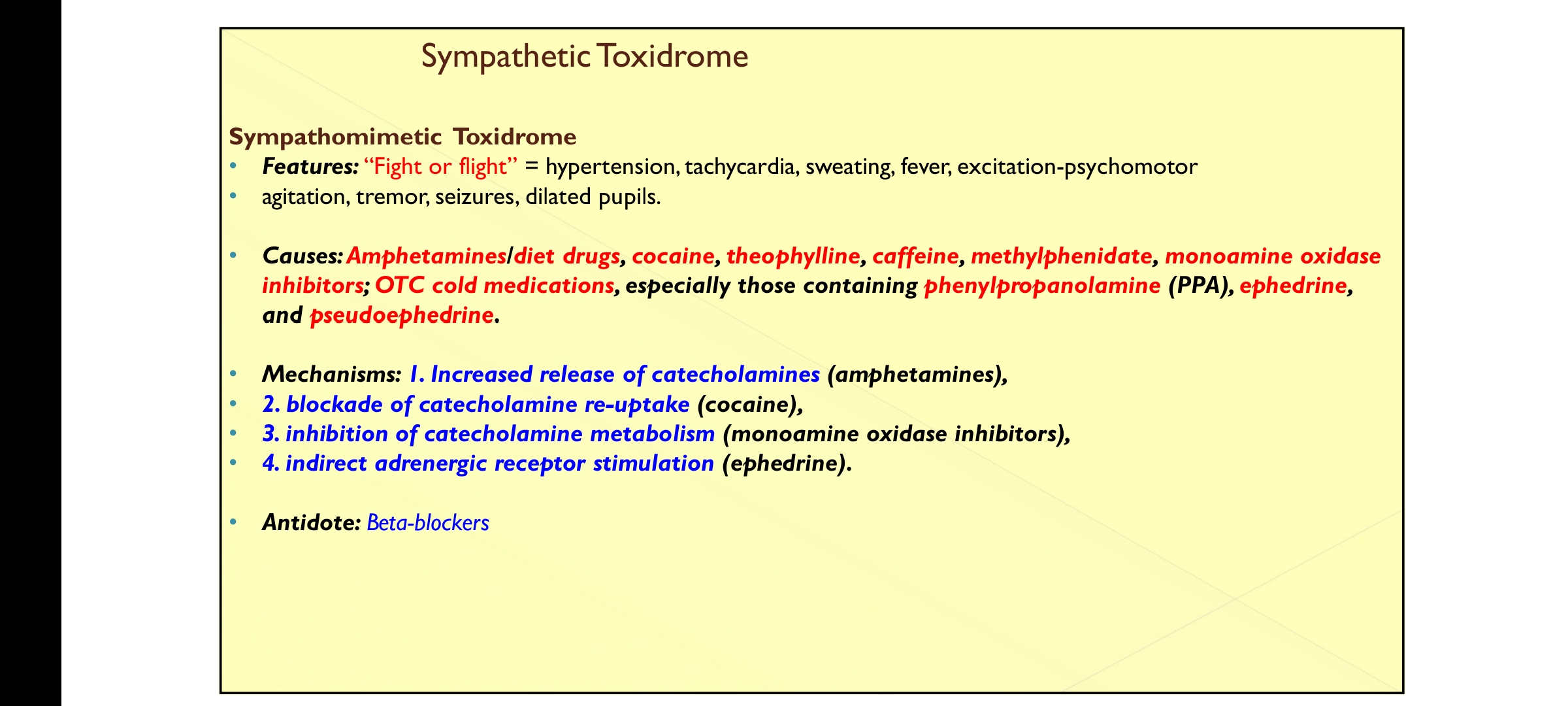What is sympathetic toxidrome, including its features, causes, mechanisms, and antidote?

Understand the Problem
The question is likely seeking information on the features, causes, mechanisms, and treatment related to sympathetic toxidrome. It covers a range of substances and their effects on the body in terms of sympathetic nervous system activation.
Answer
Sympathetic toxidrome is characterized by hypertension, tachycardia, and sweating, commonly caused by drugs like amphetamines. Beta-blockers are used as an antidote.
Sympathetic toxidrome, also known as sympathomimetic toxidrome, involves symptoms like hypertension, tachycardia, sweating, and agitation caused by drugs such as amphetamines, cocaine, and caffeine. Its mechanisms include increased catecholamine release and re-uptake blockade. Beta-blockers can be used as an antidote.
Answer for screen readers
Sympathetic toxidrome, also known as sympathomimetic toxidrome, involves symptoms like hypertension, tachycardia, sweating, and agitation caused by drugs such as amphetamines, cocaine, and caffeine. Its mechanisms include increased catecholamine release and re-uptake blockade. Beta-blockers can be used as an antidote.
More Information
Sympathetic toxidrome is associated with the 'fight or flight' response and involves heightened sympathetic nervous system activity.
Tips
A common mistake is confusing the sympathetic toxidrome with other toxidromes, leading to inappropriate treatment.
Sources
- Sympathomimetic Toxicity - Deranged Physiology - derangedphysiology.com
- Sympathomimetic Toxidrome - DOC2US - doc2us.com
AI-generated content may contain errors. Please verify critical information